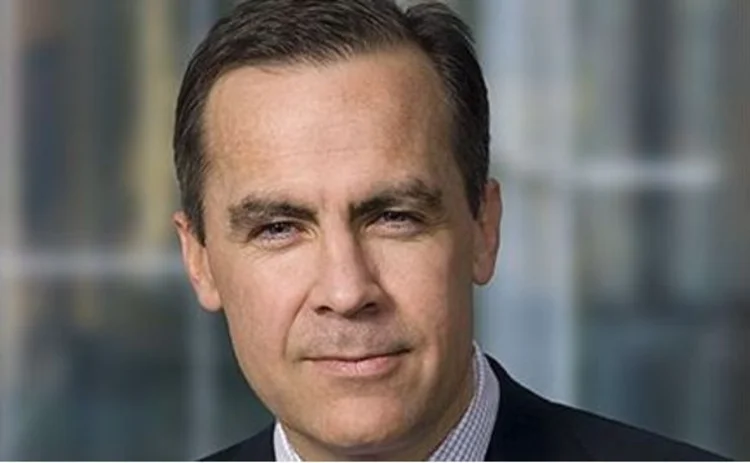
“We failed the system”: Carney at RBI panel
Governors including Canada’s Mark Carney and India’s Duvvuri Subbarao point to imbalances as root cause of the crisis, but skirt around concerns over the dollar

The build-up of imbalances in the global economy has shown the international monetary system to be woefully inadequate, a panel of central bank governors said on Saturday.
"We saw over the course of the last decade what began as prudential self-insurance grow to proportions that appear, even given the evidence of the crisis, to grow to levels that can be deemed excessive," Mark Carney, the governor of the Bank of Canada, said at the inaugural Reserve Bank of India research conference.
Duvvuri Subbarao, the governor of the Reserve Bank of India, agreed, explaining that imbalances had been crucial in causing the financial crisis. "Imbalances were building up, and countries with current-account surpluses invested in Treasuries. As a result, in the US and other advanced economies there was too much liquidity, which in turn drove the search for yields and hence financial innovation," he said.
It was merely "incidental" that these elements had culminated in a financial crisis, rather than, for instance, a currency crisis, Subbarao added. "It was the same dirt that accumulated," he said.
Daw Tenzin, the managing director of the Royal Monetary Authority of Bhutan, said reliance on the greenback as the reserve currency was problematic. "For some time, the issue in our part of the world has been whether the US dollar as the reserve currency stands credible," he said, adding that over 80% of Bhutanese reserves were dollar-denominated.
For Carney, however, this was not the time to moot replacing the dollar with the International Monetary Fund's special drawing rights (SDR). "The prospect of SDRs as a meaningful reserve currency are remote on any reasonable time horizon, partly because of the governing structure of the IMF and partly because it doesn't solve the adjustment problem in our opinion," Carney said. "In fact, it just distributed ‘exorbitant privilege' to the constituent members of the SDR," he noted.
In that sense, the IMF had acquired aspects of an exclusive members club, on the views of Tenzin and Atiur Rahman, the governor of the Bangladesh Bank. Rahman in particular lamented the exclusion of low income countries such as Bangladesh from the Fund's and G20's discourse, especially when they had fared well out of the financial crisis. Bangladesh had grown by 5.9% amid a global financial crisis, with exports and remittances on the up, but hardly got a voice, Rahman said. "The IMF, as of today, has not reflected its concerns or suggestions on financial inclusion which the RBI and Bangladesh Bank are pursuing so much," he said, pointing out that there was "ample scope for refining the international financial system" so that it better incorporated the concerns of low-income developing countries. He added that it would be down to countries such as India, which had the benefit of a place at the international table, to feed through the concerns of its lower-income neighbours. Subbarao later responded that this was an obligation India was keen to fulfil, saying: "If India is getting left out of international fora, we worry about it."
Tenzin voiced similar worries that Bhutan stood on the outskirts of the global economy, adding that it had barely felt the crisis was not, in a sense, something to be celebrated. "I think South Asia survived primarily because of capital controls, and for a small country like Bhutan, where the reserves were built up largely through aid and soft loans, there was no way we could open up. Anglo-Saxon capitalism melted the virtue of liberalism, and there comes a point where we reinfuse state capitalism," he said. He was agreed with Carney, however, that this was not the time in which to consider alternatives to the dollar, saying regional monetary arrangements "should not be an immediate concern at this point."
Click here to view the panel discussion
Read more articles like this one at CentralBanking.com
Only users who have a paid subscription or are part of a corporate subscription are able to print or copy content.
To access these options, along with all other subscription benefits, please contact info@risk.net or view our subscription options here: http://subscriptions.risk.net/subscribe
You are currently unable to print this content. Please contact info@risk.net to find out more.
You are currently unable to copy this content. Please contact info@risk.net to find out more.
Copyright Infopro Digital Limited. All rights reserved.
As outlined in our terms and conditions, https://www.infopro-digital.com/terms-and-conditions/subscriptions/ (point 2.4), printing is limited to a single copy.
If you would like to purchase additional rights please email info@risk.net
Copyright Infopro Digital Limited. All rights reserved.
You may share this content using our article tools. As outlined in our terms and conditions, https://www.infopro-digital.com/terms-and-conditions/subscriptions/ (clause 2.4), an Authorised User may only make one copy of the materials for their own personal use. You must also comply with the restrictions in clause 2.5.
If you would like to purchase additional rights please email info@risk.net
More on Economics
Global investment outlook: 2026 and beyond
Broadening, steepening and weakening: Franklin Templeton’s top investment ideas for 2026 and beyond
Webinar – Nowcasting the US economy
Join CME Group Chief Economist, Blu Putnam, as he shares insights using alternative data and nowcasting to monitor developments in the US economy.
Fed Funds Futures in a Post-ZIRP World
As the FOMC returns to more active management of its key target rate, Federal Funds futures have experienced dramatic growth.
Challenging economic pessimism: an optimistic note
A contrarian, upbeat view of the long-term economic outlook
Economists, like hedge fund traders, need open minds
Economists, risk managers and traders must learn the lessons of crisis, says Kaminski
Fed wrong not to start QE tapering, says UBS economist
The surprise decision by the Federal Reserve last month not to scale back its quantitative easing programme will create more volatility, says economist







